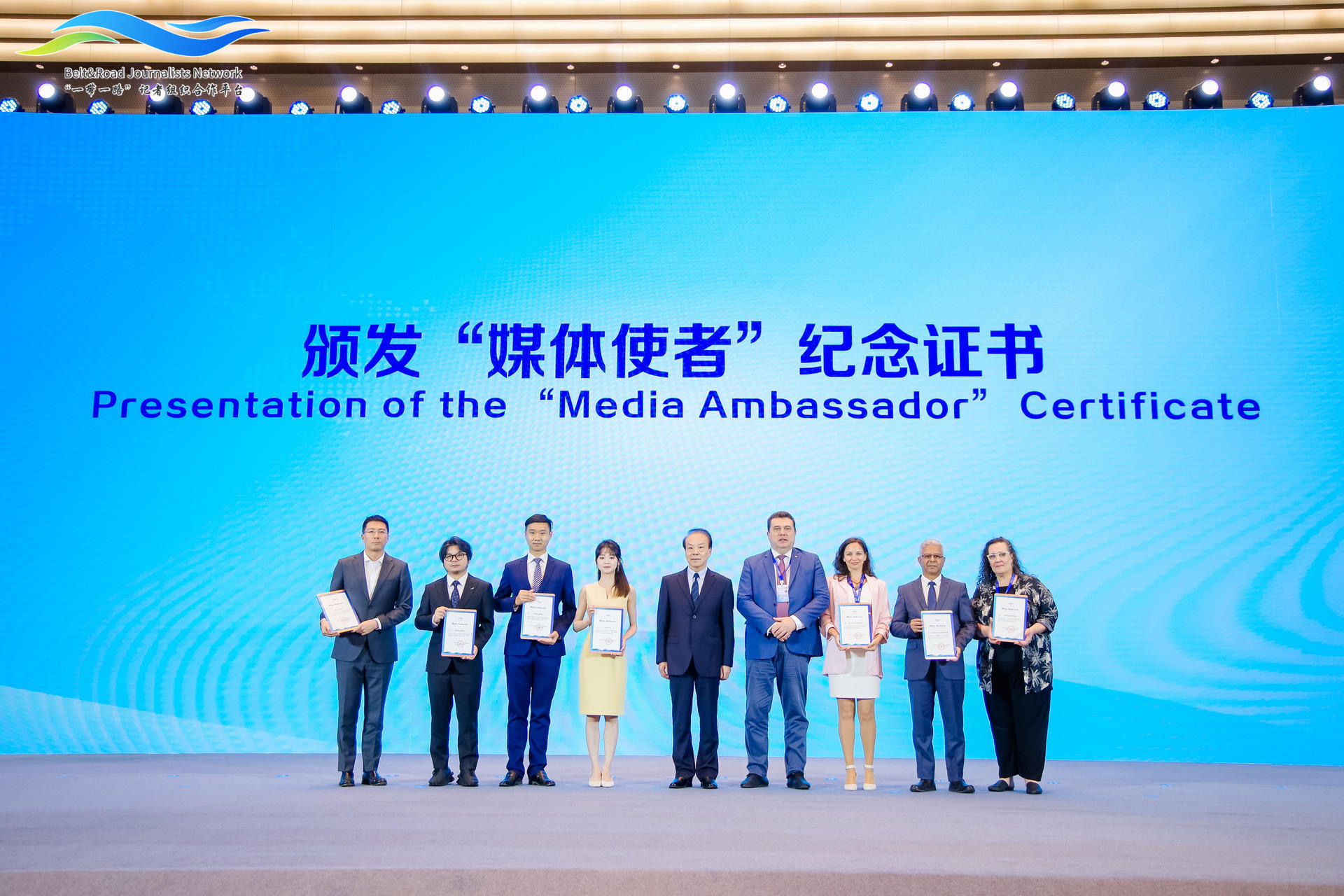 Bridging News
Bridging News
2024 Belt and Road Journalists Forum Opens, Chongqing Designated as Journalists Station
Chongqing - The 2024 Belt and Road Journalists Forum opened on Saturday in Chongqing, drawing nearly 100 media executives and representatives from 50 countries and regions.
The forum, themed "Expand the Path of Opportunities, Share a Bright Future," emphasized the crucial role of journalism in promoting international understanding, especially in the face of rising geopolitical tensions and regional conflicts.
Participants emphasized that media collaboration is more crucial than ever. Journalists must deliver objective, fair, and accurate reporting to bridge cultural divides, reduce misunderstandings, and promote global peace.
At the opening ceremony, the forum awarded the "International Home of Journalists" certificate to media organizations from over 20 countries and recognized the Chongqing Belt and Road Journalists Station as a key hub for international media exchange. Several media ambassadors also shared their experiences, highlighting the importance of cross-cultural dialogue.

The forum presented the "Media Ambassador" certificate to journalists at the opening ceremony. (Photo/ 2024 Belt and Road Journalists Forum Media Center)
China helps to improve lives
Tania Georgieva Glouhtcheva, Head of the International Department of DUMA Newspaper, discussed the growing involvement of nations and international organizations in the Belt and Road Initiative (BRI) over the past decade.

Tania Georgieva Glouhtcheva, Head of the International Department of DUMA Newspaper. (Photo/ 2024 Belt and Road Journalists Forum Media Center)
She observed the development of numerous roads, railways, ports, airports, hospitals, and schools, which have linked people across continents and allowed them to experience a quality of life they once thought impossible.
Glouhtcheva responded to skepticism from some Western nations by suggesting that they find it hard to believe someone would help without expecting anything in return. She proposed that this might be cultural or simply a challenge for them to grasp the fulfillment that comes from making others happy, highlighting that there's no greater wealth than seeing joy in someone else's eyes.
Reflecting on China's role, she added, "China is the best teacher when it comes to giving - not only materially, but also through millennial wisdom and exemplary political practices that improve lives."
Ayman Mahmoud Mostafa Mohamed Elkady, Executive Editor-in-Chief of the Middle East News Agency, echoed these sentiments in his remarks.

Ayman Mahmoud Mostafa Mohamed Elkady, Executive Editor-in-Chief of the Middle East News Agency. (Photo/ 2024 Belt and Road Journalists Forum Media Center)
Elkady reflected on his 32-year career as a journalist, noting that his time in China was the most transformative. His experiences there profoundly influenced his perspective on international cooperation, particularly between Egypt and China, as the two countries continue to strengthen their economic and political ties.
He described his three years in China as some of the happiest in his life and expressed hope for the continued growth of Egypt-China cooperation, believing it will benefit both nations and lead to a brighter, more stable future.
Chongqing's effective measures to protect Yangtze River
In the "Fresh Insights of China" session, Yophiandi Kurniawan, Deputy of International Relations and News Producer at the Indonesian Cyber Media Network (JMSI), shared a topic of Yangtze River: Its Role and Appreciation of Civilization.
Kurniawan praised Chongqing's strong historical and cultural connection to the Yangtze River, noting its importance to the region's ecosystem, food security, and technological progress. He highlighted Liangping district's efforts to protect and enhance the river's ecosystem using technologies like AI-powered wildlife monitoring.
Yophiandi said that Chongqing recognizes the Yangtze River's importance not only as a natural resource but also as a symbol of civilization and a tool for combating climate change. The fusion of AI and environmental preservation in Liangping is a model for others to follow.
He also mentioned that pandas are key to China's soft diplomacy. "These beloved animals are more than just icons of cuteness; they're symbols of China's history and modern international outreach. Panda diplomacy is a prime example of non-verbal communication between nations."
The forum is a key platform for global media collaboration, connecting 100 journalist organizations and reaching 1.65 million media professionals. It promotes mutual understanding and encourages insightful, authentic reporting to strengthen international ties.
 Related Stories
Related Stories